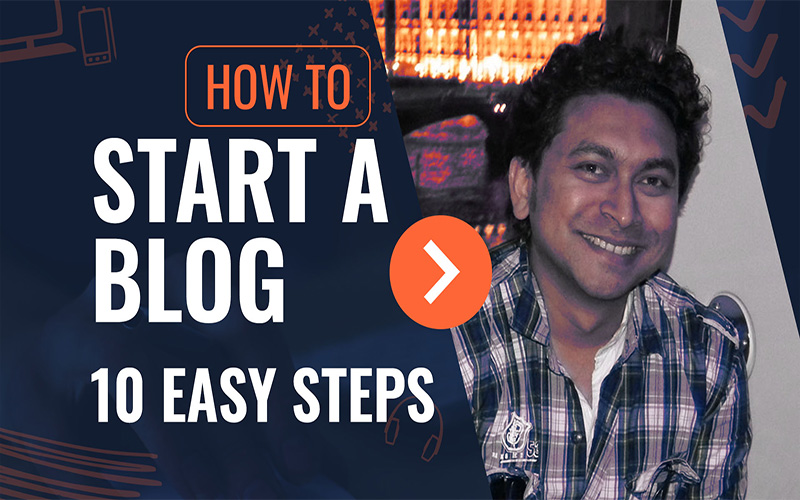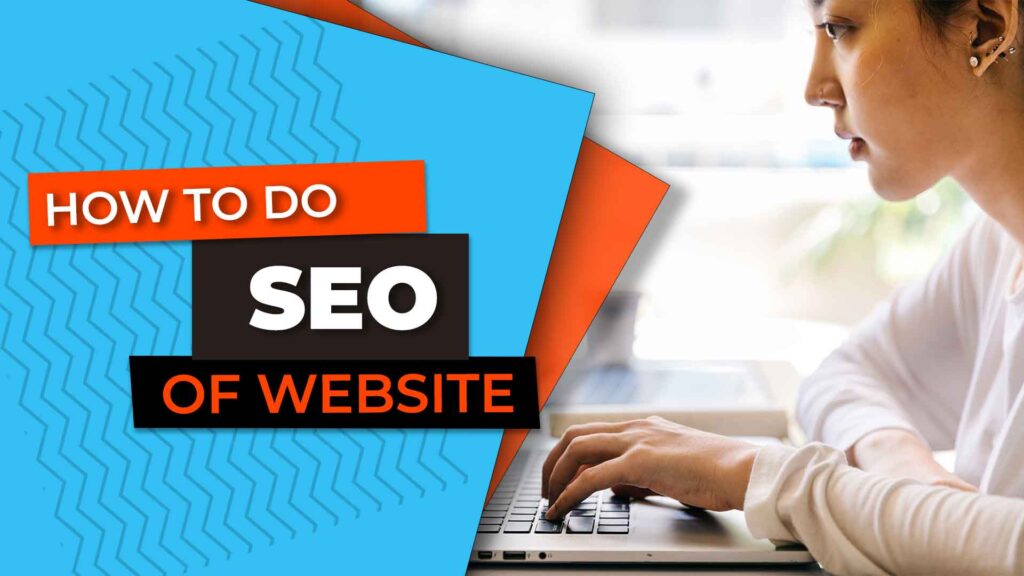A website used to require months of coding, in order to create it on your own, or thousands of dollars to hire a developer or a web development firm to do it.
Of course, those solutions are still available today, but there is also a third choice that is significantly quicker, simpler, and less expensive.

Without prior experience or design expertise, anyone can now create a professional-looking website in a matter of hours (instead of weeks or months) thanks to the availability of user-friendly website builders.
Most website builders also offer web hosting, allowing you to launch your website right away and do away with the need for outside assistance.
Website builders often offer templates and features based on web design best practices.
This provides you an advantage in designing a website that converts visitors into customers without investing a lot of time in learning the ins and outs of website development.
So if you let me, ask couple of questions
What kind of Websites can be Built using a Website Builder?
You can design websites using a website builder just like you do using code, but the process is much simpler. As an example of the kind of websites you can create, consider this:
1. PERSONAL BLOG
Most website builders are straightforward, making them excellent for blogging. A website builder can assist you in building any size tech review site or tiny personal blog without the need to hire a consultant.
2. COMPANY WEBSITE
Websites for online businesses often have a contact page, a FAQ section, and a description of the main services, with optional extras. As a result, building this kind of site is relatively easy as complex plug-ins are not needed. Even if you are not very tech-savvy, a website builder enables you to design an internet business website yourself.
3. E-COMMERCE
Nowadays, every fully functional website builder has an e-commerce plug-in or at least provides the opportunity to link a third-party e-store tool. You may be able to advertise your store, add the choice to accept multiple currencies, provide your customers regular promotional emails, and much more depending on the individual website builder and e-commerce plug-in you select.
4. PORTFOLIO
Particularly for those in creative professions, a portfolio website is an excellent substitute for or complement to a conventional CV. A website builder makes it simple and affordable to create one. Plug-ins let you add useful features like a contact form and a gallery of your work.
5. COMMUNITY WEBSITE
Even if you don’t know how to code, you can create a forum using a website builder. You may develop your forum into a legitimate online community by including social network sharing buttons, a search bar, educational articles, and more in addition to the question-and-answer feature.
6. PODCASTING SITE
Making a website could be a smart move if your podcast is popular on social media and you want to stand out from the crowd. Another idea is to develop a social network that anyone who wants to broadcast their podcasts on can use.
This platform would provide more capabilities than Spotify and be better suited for audio than YouTube in terms of attracting new listeners.
7. NEWS SITE
In terms of creation, news websites and blogs are very similar, however additional features can differ. You can charge your readers for access to essential content, allow comments on posts, allow social network sharing, and much more with the use of plug-ins.
What are your Needs and Priorities?
You should have a general idea of what your website will look like and function like before choosing the best website builder platform. Your priorities will become clearer as a result, helping you to focus your search.
1. Web Designing Experience:
Although most website builders are meant for users without much knowledge in website design or coding, some will still be simpler to use than others. Choose a builder that provides drag-and-drop design options and website theme templates if you plan to learn everything from scratch.
2. Design Expectations:
The best website builder for you will provide a large selection of templates for you to choose from or more flexible editing features that let you make meaningful changes to the design if you want a lot of choices and flexibility while building your website.
3. Need for Online Selling:
An eCommerce website must have check-out and shopping cart features, as well as a design that encourage customers to proceed to the next step of making a purchase. Think about whether the website builder you choose has the right layouts and features to support an online business.
4. Use of Media types:
Will there be any video on your online store? A picture gallery perhaps? Some audio podcasts? a location map of your store? Verify that the content formats you intend to use are supported by the website builder.
Features an ideal Website Builder software should Have?
Making the right choice while selecting a platform requires being aware of the characteristics that must be present in the website builder.
I’ve provided a list of some of the most crucial elements below to assist you.
1. PRICING
The cost should be taken into account while choosing a website builder. For a few reasons, it might even be your top criterion. It can first aid in eliminating solutions that are excessively pricey.
The wrong website builder for your project is one that has all the features and extensions you desire but is completely out of your price range.
2. TRIAL & GUARANTEES
A free trial period when you can test out the product before buying it is essential. In addition, if you’re dissatisfied with the product, many website builders also provide a money-back guarantee.
3. THEMES & TEMPLATES
When someone visits your website, the first thing that captures their attention is the design, which can either persuade them to stay or drive them away.
The quality of your templates should be a key consideration in your decision-making unless you’re prepared to engage a professional designer.
4. DOMAIN NAME
Free domains are a nice-to-have option, but they aren’t usually offered. Additionally, if a domain name is included with creating an account on a website builder, the selections might not be as varied as those on domain registrars.
5. PLUGINS/EXTENSIONS:
No matter how many features a website builder provides right out of the box, it’s unlikely to have everything a site owner could possibly require.
In that situation, it’s wise to see if the product supports integrations or extensions for outside software. This will make sure you can add any features, like forms and live chat, that are lacking to your website.
6. EASE OF USE:
Using an online website builder instead of paying a professional developer is one of the main benefits. Therefore, usability is essential.
Make sure you understand the platform’s operation in full and have the ability to make and change the website on your own.
The user-friendliness of website builders varies greatly, despite the fact that they are unquestionably easier for the average user to use than coding.
Some systems could offer a wider variety of customization possibilities and a trickier user interface, requiring a basic knowledge of HTML.
7. FLEXIBILITY
Most website builders let you develop a website that is customized to your needs in a variety of ways, so you should have complete control over the final product.
For every business that wants to grow, having a website that can change with users’ requirements is essential.
8. STORE FEATURE
With the correct website builder, you can quickly set up an ecommerce online store and begin selling goods or services. Online stores are growing in popularity.
Additionally, your website needs to be safe so that clients may add products to their shopping carts and enter their credit card information without getting nervous.
9. MOBILE FRIENDLY
In the modern day, a responsive business website is necessary. Given the rising popularity of mobile devices, your website must display properly on all devices, regardless of which one a consumer is using to browse.
10. SEO FRIENDLY
Any good website builder comes with marketing and SEO tools as standard features.
With the aid of these capabilities, you might achieve high search engine rankings for particular keywords associated with your small business.
Selecting a website builder with marketing and SEO capabilities is crucial since search engine algorithms are constantly changing and becoming smarter.
11. ANALYTICS
To monitor the traffic to and effectiveness of your website, add Google Analytics. Tracking capabilities can assist you in making informed decisions about your website, whether you want to know how long visitors remain on your site, what pages they view, or where they are coming from.
12. SECURITY
SSL Certificates, Daily Backups and Malware scanning needs to be present in an Ideal Website Builder Security offering.
13. SUPPORT
Even if a website builder’s interface is generally simple to use, there may still be times when you face difficulty or are unable to figure out how to add a particular element to your website.
Wrapping Up
Anything new may be a bit confusing and hard at first. But as you wet your feet a bit in the water, swimming can be in the reckoning. I will be happy to help and answer your queries in the Comments section. Please feel free to jot down your thoughts and give me some feedback. From Brick bats to Marshmallows all accepted. Also Please Share this article in your Social Circle, you never know any of your Friends may need this.




